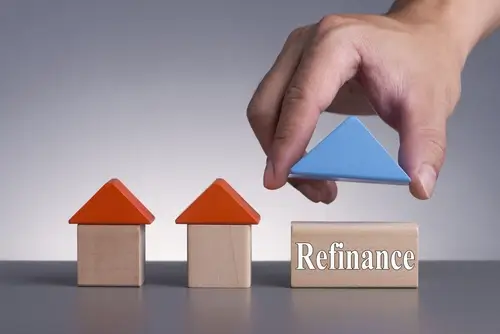
After a steady climb over the past year, as of December 2023 mortgage interest rates have mercifully dipped almost a full percentage point from their peak. It may be a good time to refinance your current mortgage. Here's what you need to know about the when and how of mortgage refinancing, empowering you with the knowledge to make informed decisions for your financial well-being.
When to Refinance
- Interest Rates Are Favorable
Keep a vigilant eye on market trends. If interest rates have significantly dropped since you secured your mortgage, it might be an opportune time to refinance. Lower interest rates translate to reduced monthly payments and overall savings. - Improved Credit Score
A higher credit score can open doors to better loan terms. If your credit score has seen an improvement since you first obtained your mortgage, refinancing can lead to a lower interest rate, saving you money over the life of the loan. - Change in Financial Situation
Life is dynamic, and so are our financial situations. If you've experienced positive changes such as a salary increase, a new job, or a reduction in debt, you may have more disposable income to put towards your mortgage. Refinancing can help you take advantage of your improved financial standing.
How to Refinance
- Evaluate Your Financial Goals
Before diving into the refinancing process, clearly define your financial objectives. Are you aiming to reduce monthly payments, pay off your mortgage sooner, or access cash for other investments? Understanding your goals will guide the refinancing decisions you make. - Gather Necessary Documentation
Be prepared to provide financial documentation, including pay stubs, tax returns, bank account statements, credit reports, and details about your current mortgage. Having these documents in order streamlines the refinancing application process. - Compare Loans and Choose the Right Loan Type
Not all loans offer the same terms. Consider factors such as interest rates, closing costs, and loan terms to find the option that aligns best with your financial goals. Refinancing also provides an opportunity to explore different loan types. Consider switching from an adjustable-rate mortgage (ARM) to a fixed-rate mortgage for stability, or explore cash-out refinancing if you need funds for home improvements or debt consolidation. - Calculate Costs and Savings
While refinancing can save you money in the long run, it's essential to calculate the upfront costs. Factor in closing costs, application fees, and any potential prepayment penalties. Ensure that the overall savings justify the expenses associated with refinancing.
Refinancing your mortgage is a strategic financial move that can unlock savings and provide greater financial flexibility. By understanding when to refinance and how to navigate the process, you empower yourself to make informed decisions tailored to your unique financial situation. Remember, the key is to align your refinancing goals with the right loan terms, ensuring that your mortgage continues to be a tool for financial growth and stability.
If you're thinking about refinancing your mortgage, please give us a call now!
Disclaimer: These materials are not from HUD or FHA and were not approved by HUD or a government agency and in some cases a refinance loan might result in higher finance charges over the life of the loan.

